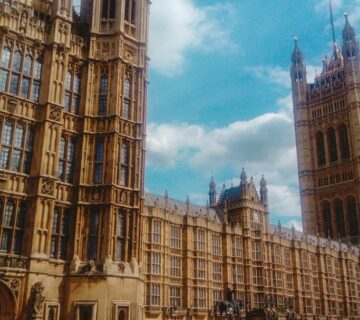In a bold stride towards public health, the United Kingdom is at the cusp of introducing groundbreaking legislation—the smoking ban. This proposed law, which has garnered significant attention, suggests a smoking ban for individuals born after 2009. Health experts, including Chris Whitty, champion this policy, which is anticipated to be voted on by MPs. This move could position the UK as a pioneer in smoking prevention, aiming to create a smoke-free generation.
This article delves into the smoking ban’s nuances, implications, rationale, and the debates it has sparked among policymakers, health professionals, and the public.
Understanding the Smoking Ban: An Overview
The smoking ban represents a radical shift in tobacco control strategy. By prohibiting the sale of tobacco products to anyone born after 2009, the UK aims to drastically reduce smoking rates among future generations, ultimately leading to a healthier society. This preventive approach seeks to break the cycle of smoking addiction before it starts. It targets the accessibility of tobacco to young people.
The Role of Chris Whitty and Health Officials
Chris Whitty, the Chief Medical Officer for England and other public health officials, has been a vocal advocate for the smoking ban. They argue that early prevention is critical to long-term health. By stopping young people from ever starting to smoke, the UK can significantly lower the incidence of smoking-related diseases such as lung cancer, heart disease, and chronic respiratory conditions.
MPs to Vote on the Smoking Ban
The proposal has made its way to the halls of Parliament, where MPs are preparing to vote on this groundbreaking health policy. The MPs’ decision will be critical in determining the future of tobacco control in the UK. A favorable vote could potentially lead to implementing one of the world’s most stringent anti-smoking laws.
Public Reaction and Societal Impact
The smoking ban has sparked many reactions from the public and different sectors of society. While many applaud the proactive approach to health preservation, others raise concerns about personal freedom and the role of government in regulating lifestyle choices.
Pros of the Smoking Ban
- Health Benefits: The primary advantage is the potential for significant health improvements across the population, particularly among future generations.
- Economic Savings: Reducing smoking rates can lead to lower healthcare costs related to treating smoking-associated diseases.
- Social Change: This policy could cultivate a cultural shift towards healthier lifestyles and set a global benchmark in tobacco control.
Cons of the Smoking Ban
- Personal Freedom: Critics argue that such bans impinge on individual rights and personal freedoms to choose one’s lifestyle.
- Enforcement Challenges: The practicality of enforcing such a ban raises questions about black markets and the policing of tobacco sales.
Historical Context and Global Comparisons
Examining the smoking ban within the broader historical and international context helps illuminate its potential effectiveness and challenges. Several countries have implemented various forms of tobacco control with varying degrees of success. This section compares the UK’s approach to those of other nations, drawing lessons and anticipating hurdles in implementing the smoking ban.
Case Studies from Other Countries
- New Zealand’s Approach: Similar to the UK’s proposal, New Zealand has adopted laws to create a smoke-free generation.
- Norwegian Smoking Laws: Norway’s strict smoking laws and their impact on public health provide insight into the potential outcomes of the UK’s smoking ban.
Future Prospects and Policy Recommendations
As the UK stands on the brink of potentially adopting the smoking ban, this section outlines the prospects of this policy and provides recommendations for its successful implementation.
Strategies for Effective Implementation
Public Education Campaigns: Extensive public education on the benefits of the smoking ban is crucial to garnering support and compliance.
Support Systems for Smokers: Offering support and resources for current smokers, particularly youths. It can ease the transition and help prevent new smokers from emerging.
Conclusion
The smoking ban in the UK is more than a legislative measure. It is a potential turning point in public health strategy. With the backing of significant figures like Chris Whitty and the attention of MPs, this policy could redefine the future of smoking in the country. The nation awaits the decision of its lawmakers. The implications of this ban continue to stimulate robust debate and hopeful anticipation for a healthier future.
FAQs
What is the smoking ban?
The smocking ban is proposed legislation in the UK prohibiting the sale of tobacco products to anyone born after 2009. This initiative is designed to prevent new generations from starting smoking and reduce future health issues and related healthcare costs.
Why target the generation born after 2009?
Targeting the generation born after 2009 allows the policy to create a clear cutoff point, making it easier to enforce and communicate. The rationale is that by the time these individuals reach the age where they might typically begin smoking, they would legally be unable to purchase tobacco products. It will effectively reduce the initiation rate of smoking among this cohort.
How does Chris Whitty support the smoking ban?
Chris Whitty, the Chief Medical Officer for England, supports the smoking ban as a critical measure for public health. He advocates for preventative measures in healthcare, emphasizing the long-term benefits of preventing young people from starting to smoke. Public health includes reduced incidence of chronic diseases and a healthier population.
When will MPs vote on the smoking ban?
Members of Parliament (MPs) are expected to vote on the smoking ban as part of their discussions on health and public safety measures. The exact date for the vote may vary depending on the parliamentary schedule and the prioritization of legislative efforts.
What are the potential benefits of the smoking ban?
The potential benefits of the smocking ban include significant public health improvements, particularly in reducing the prevalence of smoking-related diseases such as lung cancer, heart disease, and chronic obstructive pulmonary disease (COPD). Economically, it could also lead to decreased healthcare costs associated with treating such conditions. Socially, the ban could shift cultural norms towards healthier lifestyles and set an international example for preventing tobacco use among young people.





